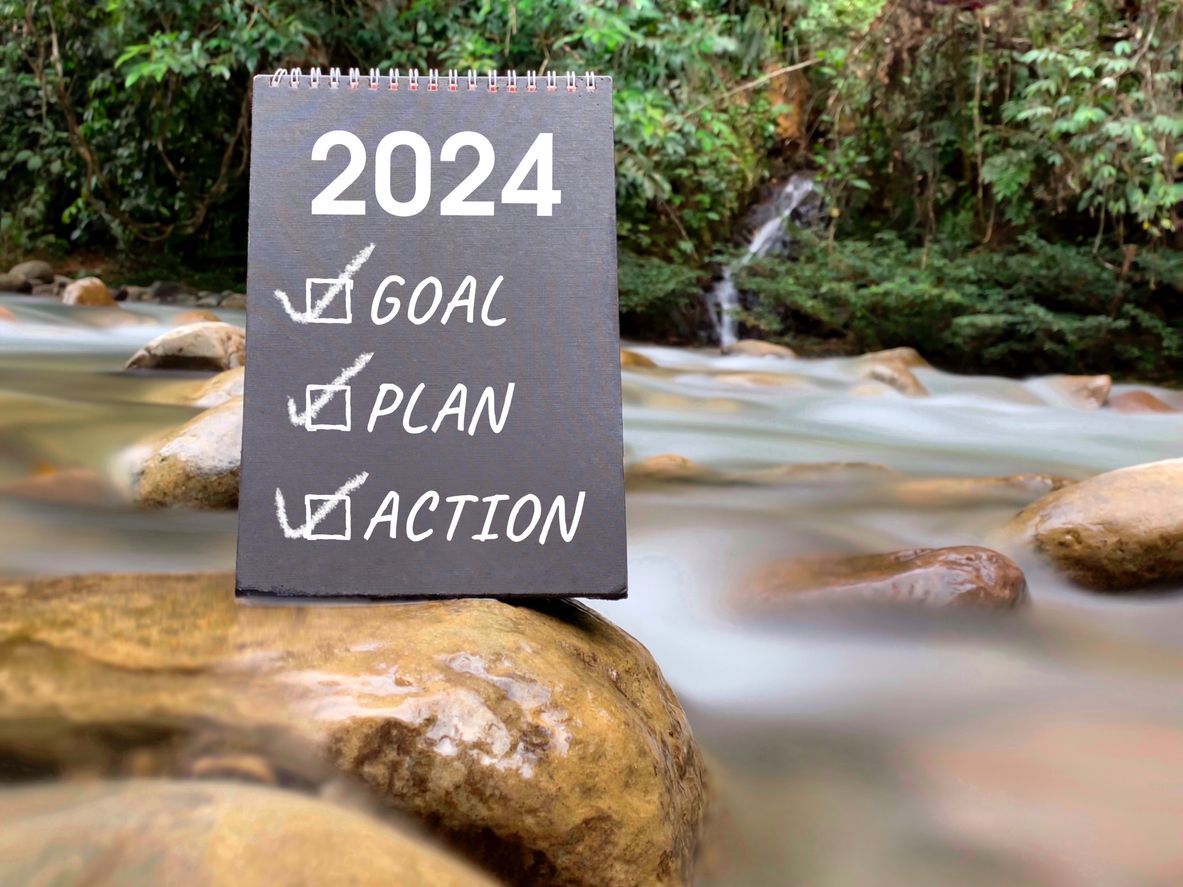Focusing on Your 2024 Goals
Cathie Leimbach • January 2, 2024

2024 has just arrived! May it be a Happy New Year full of achievement and fulfillment!
The first step in having a great year is to decide what will make it a great year for you. If you don’t have a destination – where you wish your life and work activities will take you this year, they you can’t map out a path to get there. If you haven’t yet set goals for this new year, then this week is the best time to determine a few 2024 goals with deadline dates.
Once you have some important measurable goals, it is important to hold yourself accountable to consistently take actions towards achieving them. Here are a few steps that will help you stay focused on these priorities.
- Review your goals daily to keep them top of mind.
- Set milestones indicating how much progress you wish to make each week or month.
- Review your progress weekly or monthly to see if you are meeting your milestones.
- When you meet a milestone, celebrate. Go out for a specialty coffee or go see a movie. For major milestones, you might go out-of-town for the weekend or treat yourself to dinner at a high end restaurant.
- When you miss a milestone, review the actions you have taken, what helped you make progress, what were your bottlenecks. Develop plan B that will enable you to make more progress in the coming week.
- If you are stumbling, get an accountability partner to encourage your success and help you stay on track. This could be a business colleague, friend, family member, or a professional coach.
- Keep taking the actions that yield progress.
- And, when each goal is achieved, celebrate!
Wishing you a year full of achievement and joy!

Accountability doesn’t have to feel tense or awkward. When done well, it’s calm, clear, and supportive. Most leaders avoid it because they don’t want conflict. But avoiding it creates something worse — inconsistency, frustration, and missed results. Strong accountability is simple: What was expected? What actually happened? What needs to happen next? When leaders address issues early and clearly, drama fades. People know where they stand. Follow through improves. Common mistakes: Waiting too long Being inconsistent Attacking the person’s character These patterns can change. With the right habits, accountability becomes predictable instead of stressful — and work gets better fast. 👉Download our Accountability Without Drama Checklist to practice these conversations with confidence.

Most communication problems don’t happen because people aren’t listening. They happen because leaders assume clarity instead of checking for it. “I think they get it” isn’t the same as “they really do.” When people don’t clearly understand what’s expected of them, they make their own assumptions to fill in the gaps. That’s when rework, missed deadlines, and frustration show up. Strong leaders ask better questions: What do you see as the top priority? What does success look like to you? What could get in the way? These don’t slow work down — they prevent costly resets later. Try a simple weekly habit: Think about one key conversation. What did I mean? What did they hear? Where was the gap? Small awareness leads to big gains. 👉 You’re invited to a Leadership Conversation with other leaders to discuss common leadership gaps and how they quietly influence results.
